In my previous blog post I mentioned I was lucky enough to listen to a much-sought-after webinar given by the Reading Ape. Well, I came away with another rethink:
“Spelling helps reading more than reading helps spelling,” the Reading Ape explained. This is based on the research and work of Perfetti, and is supported by robust research.
But, wait a minute – I always thought that it was the other way round: what I needed to do was focus on teaching my pupils to read. Once reading had taken off, they would be exposed to words repeatedly through their reading and, as a result, their spelling would improve. The assumption was that spelling will come, once reading takes off. Apparently, reading NEEDS spelling in order to take off!
The reason why spelling helps children learning to read is because it enables the brain to develop an efficient ‘orthographic processing’ system which identifies ‘legitimate’ letter patterns and links sound/letter bonds within words at a subconscious level, and at great speed. Learning to encode (spell) consolidates and supports learning to decode (read). If you think about it, it makes sense because when you encode you build distinct building blocks within words, one distinct grapheme next to another, consolidating the sounds/spellings within each block.
Also, encoding is a multisensory activity of word-building. The physical action of writing the letters and linking them to sounds in words contributes to embedding this information in long-term memory. Encoding (spelling) is a truly multi-sensory activity. We say the sounds in our heads, then recall the letters that spell those sounds, and make marks on the paper to represent those sounds. This entails, hearing, seeing and kinaesthetic/fine motor activities. This is the consolidation the brain needs to develop automatic word recognition. This is why I prefer pen and paper spelling activities to online spelling activities. Online spelling activities don’t engage our muscle memory which is so important for consolidation.
What are the implications for our teaching?
Include explicit teaching of spelling throughout primary school education.
The implications for our teaching is that we need to be teaching spelling with reading not just at the initial stages, but also throughout Years 3-6. This means that we need to continue to teach spelling through the Extended Code (the complex part of the Alphabetic Code, which includes vowel and consonant spelling alternatives) and not expect our pupils to pick up spelling because they are independent readers. I don’t mean sending home spelling lists. I mean teaching children how words are built of phonemes, syllables and morphemes.
Here are some examples of reading and spelling activities that consolidate the links of reading and spelling/ decoding and encoding. They are from our That Dog! activities book. This activities book complements the reading series.
Step one – read the words in the column on the left.
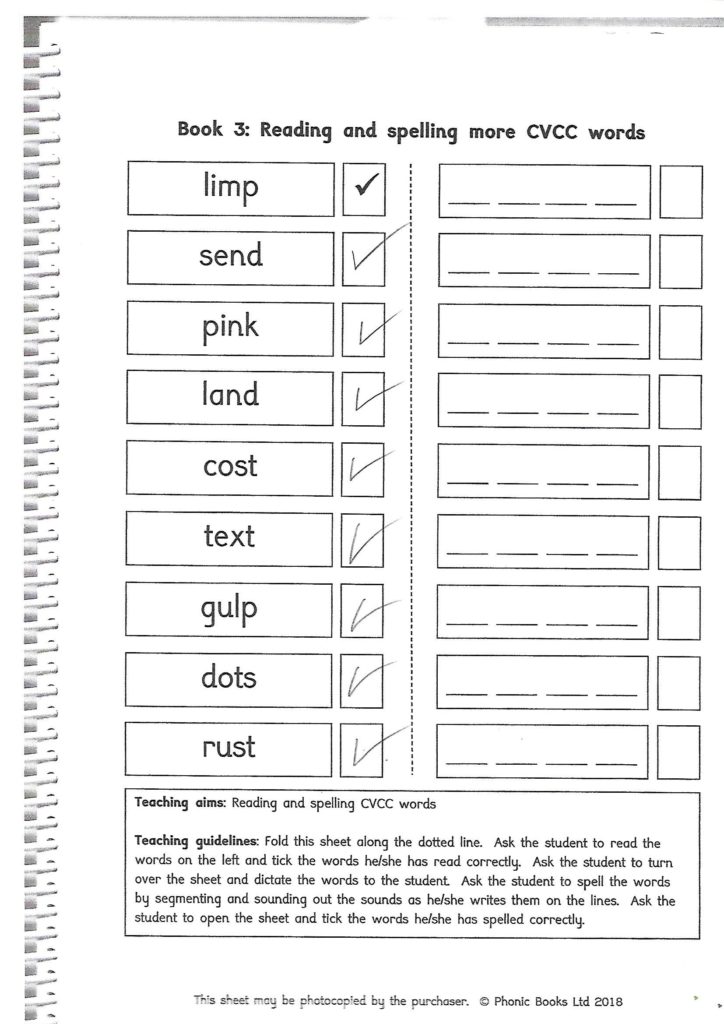
Step two – fold the sheet and turn over to show the lines for spelling.
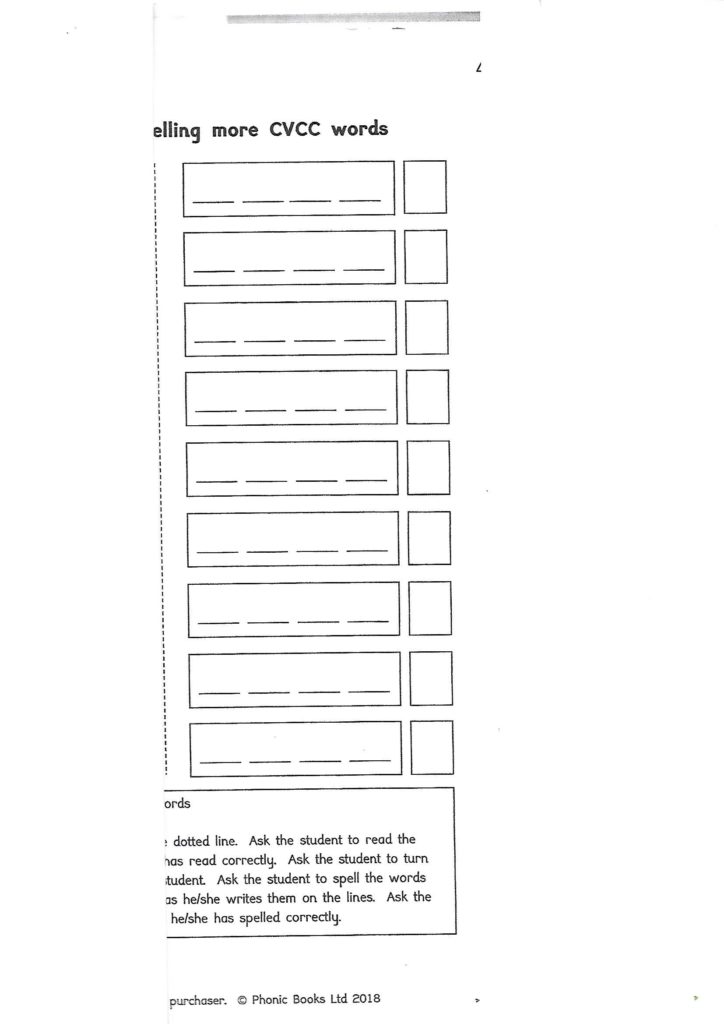
Step three – teacher dictates the same words and the pupil spells the words using the lines as scaffolding for spelling.
Step four – pupil unfolds the sheet and checks if spellings are correct. Self-checking is more empowering for the pupil than the teacher checking the spellings!
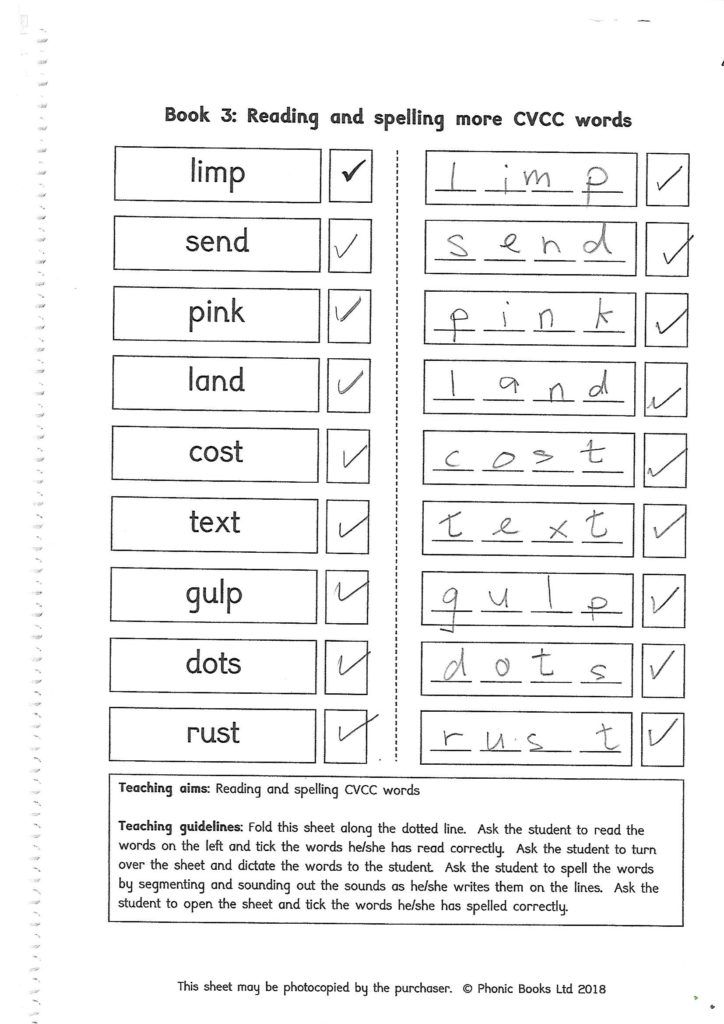
This can also be done at caption level. Here is a reading activity matching a caption to a picture.
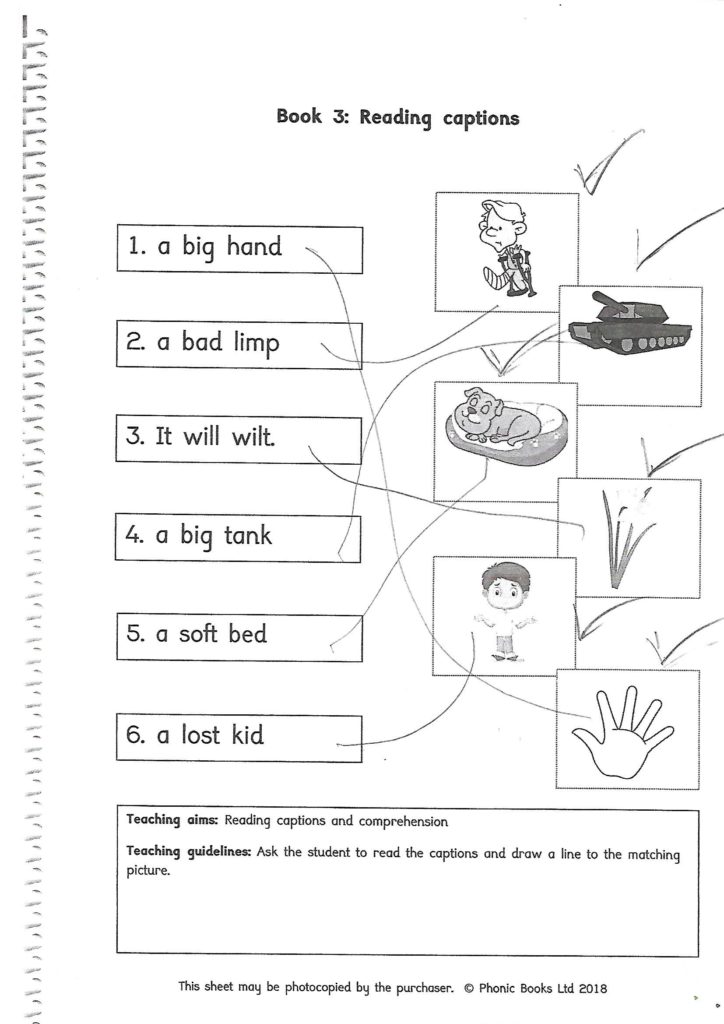
Here is the spelling activity that can be dictated to the pupil. 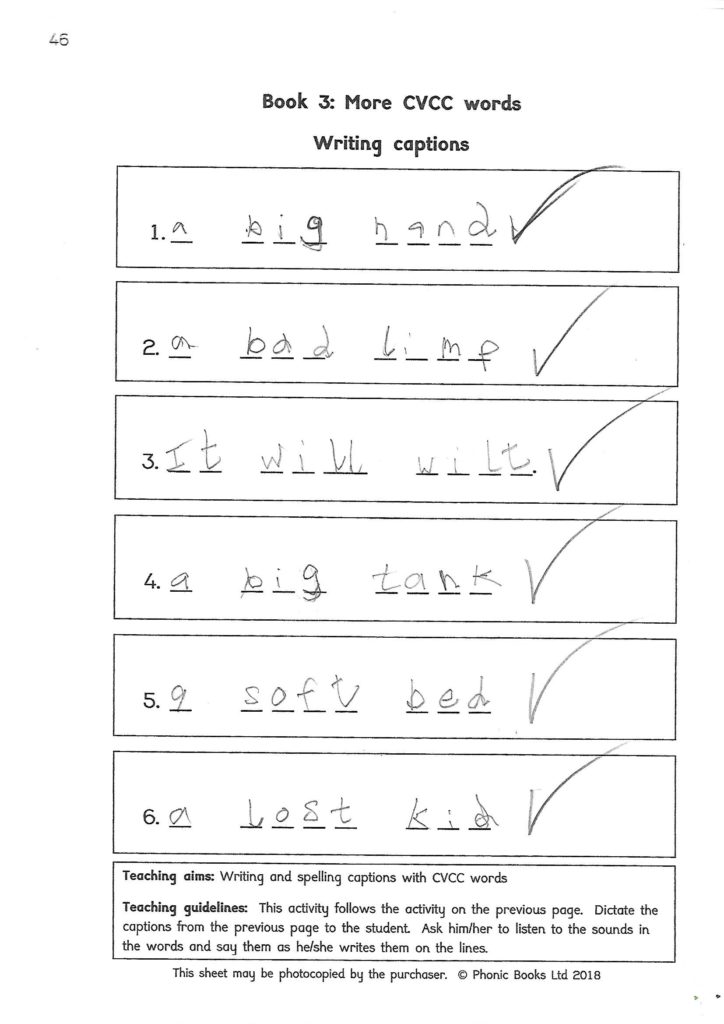
To conclude: we teachers need to ensure we include spelling activities in our lessons, not only to improve our pupils’ spelling, but to improve their reading too.
To see the That Dog! series and the activities books with these sheets go to:
UK edition here
USA edition here
#phonicsclass #phonicactivities #teachreading #teachphonics #readingintervention #structuredliteracy #systematicphonics #systematicsyntheticphonics

